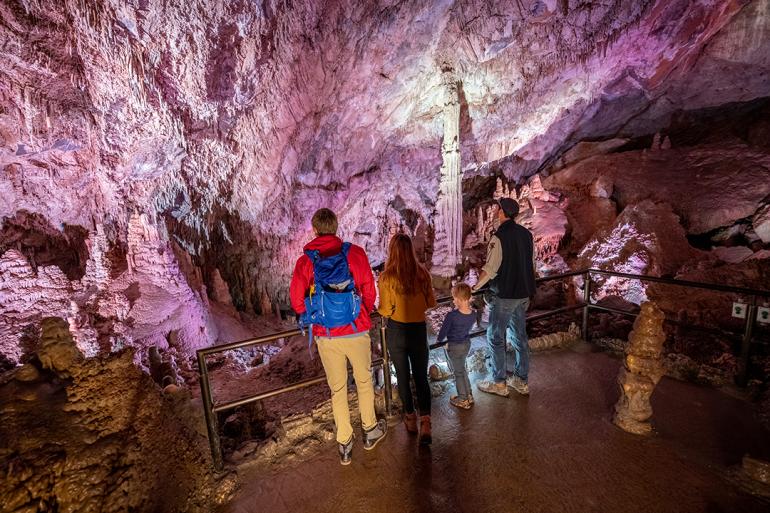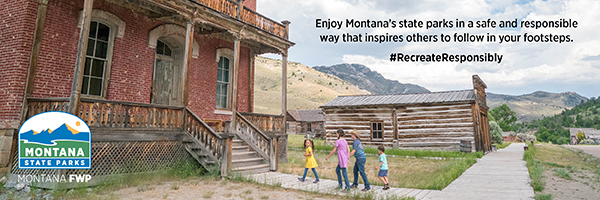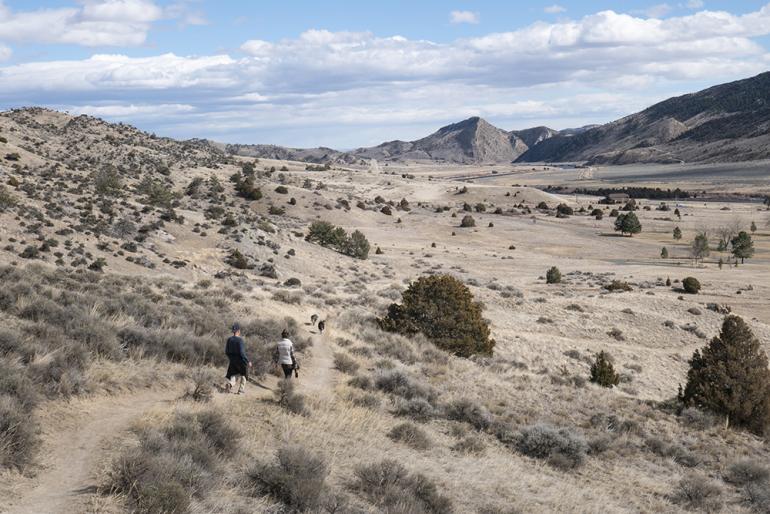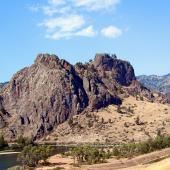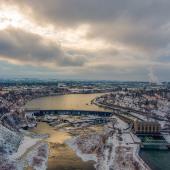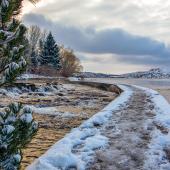Return of the Tours
Visitation to Lewis & Clark Caverns is back above normal.
Last year, visitor numbers to Montana state parks sprang from 2.6 million in 2019 to 3.4 million in 2020, an increase of 30 percent. Enormous influxes were seen throughout the state, except in Region 3, which was the only region to experience a decline. Due to closures at Bannack State Park and an extremely limited tour schedule at Lewis & Clark Caverns, Region 3 saw a loss of nearly 20,000 visitors—about an 8 percent decrease.
This summer, tours are back on at the caverns. The Fish, Wildlife & Parks mid-year report was released at the end of July, and numbers have returned to normal—and then some. We caught up with the Lewis & Clark Caverns park manager, Rhea Armstrong, to discuss the changes of the past year. This is what she had to say.
O/B: How is the summer going now that the tours are back on?
Armstrong: It’s great. We are very busy and have record numbers (up 262 percent thus far from 2020). Last year, we were being cautious as directed, but now we’re back giving tours at 25 people per tour. Our guides are giving tours all day long.
O/B: Do you need to make reservations?
Armstrong: Our tours are based on a first-come, first-served basis. Last year, we had to shift to a reservation system, down to 10 people per tour. We only led the Paradise Tour, the shorter of the two, which goes into the largest rooms only. Reservations were accepted up to two weeks in advance and they usually filled up right away.
O/B: What kind of numbers are we talking?
Armstrong: Unfortunately, the reservation system resulted in quite a few people being turned away. Even now, it’s difficult to record actual visitor numbers because more people show up in the morning wanting a tour than we have space for. It’s a two-hour wait for the next one. Some folks wait it out, but some don’t. That said, we easily see up to 500 people on any given weekday and up to 800 on a weekend.
O/B: That’s quite a few people. Last year, even though tours were limited, were people still coming to the park?
Armstrong: We had record numbers in the campground from March on. It was like a city park out here. We were able to keep our full staff because there was so much cleaning that needed to be done: latrines, visitor centers, every single handrail. We did not close the cabins, the trails, or the campground.
O/B: When did the decision to restrict cave tours come?
Armstrong: In March of 2020, the governor had stated the restrictions. Normally we open May first, but we opened on Memorial Day with a number of 10 per tour for the Paradise rooms. Given how things are now, I think the future might entail a mix of reservations and walk-up tickets.
O/B: How has the Recreate Responsibly campaign played out on the ground at Lewis & Clark?
Armstrong: There's a video we have people watch, requesting that everyone physically distance and wear masks in tight quarters. The messaging is really working, which is nice to see. We don’t have to require people to stand on the paw prints anymore (floor stickers marking 6-feet apart). People are aware and starting to get it.
O/B: As park manager, have you ever had to close the tours before for something similar?
Armstrong: I’ve been here 36 summers and I don’t recall anything other than a fire that closed the tours. And the fire I’m thinking of was in 1987—I was a second-year guide. We’re starting to focus more on fires again, which is honestly quite nice.
O/B: How are things going now that the Delta Variant is becoming more prominent?
Armstrong: Well, we’re back to cleaning doorknobs and the basic cleaning is ramping up again. We’re doing our best to keep everything sanitary, but we can’t keep up with last year’s cleaning requirements with this year’s attendance. Statewide, parks are having higher-than-normal attendance, and for us it’s no different—we’re adapting to how many people are coming. It’s a lot to deal with, but it’s also putting the parks in the forefront of Montana’s recreation, so maybe this whole thing is just a blessing in disguise.


